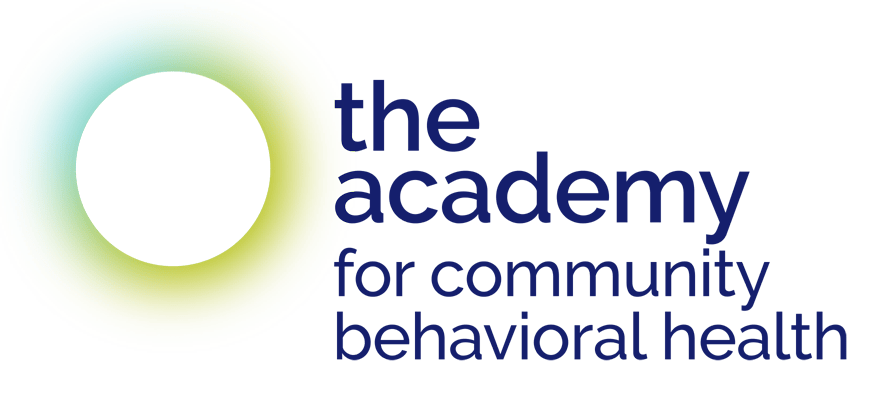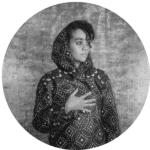All Scheduled Dates
This course will meet on the following Wednesdays from 10:00am-12:00pm:
- March 4
- March 11
- March 18
- March 25
- April 1
- April 8
- April 15
- April 22
Applications close 2/18
Course Type
Multi-Session
Course Length
16 hours
QUESTIONS?
If you are having trouble opening the application link or have any other questions regarding this course, please email us at [email protected].
ATTENDANCE POLICY
We expect participants in the Academy's cohort-based courses to attend all course sessions. Each course session will build on the prior weeks. Attending and contributing consistently will enrich your experience and that of your peers.
Participants who attend at least 6/8 sessions will receive a certificate of completion.
Fortified and Fugitive
Cultivating Resilience, Belonging, and Courage in Times of Crisis
DESCRIPTION
This 8-session course will enhance participants' capacity to navigate conditions of fear and uncertainty by orienting to our biological and communal practices for safety and belonging. Participants will build individual and communal resilience skills that support them to act courageously, and encourage those they lead to do so as well, as we collectively survive a historical period rife with existential threats and the attempted erasure of social equity.
This course includes both education and practice, drawing on Black Feminist poetic, cultural, and academic lineages, as well as Black and indigenous approaches to trauma healing and cultural practice. As the sessions progress, we will explore trauma as both a biological and collective experience, with a focus on resilience practices through the lens of biology, community, and the individual. We will explore the political framework of “fugitive practice” as an antidote to the chronic conditions of dissociation and collapse in modern American culture.
Each session will include both periods of reflection, as well as embodiment and somatic practice that do not require movement. Participants are encouraged to bring materials for journaling and reflecting, to wear comfortable clothes, and to join sessions from a private location. Participants will be provided with an 8-week guide to self-study that includes journal prompts, practices, inspirational quotes, short videos, and recommended readings.
COURSE OBJECTIVES
Participants will:
- Read, watch, and discuss the works of poets, trauma healers, and scholar-activists working at the intersection of healing, oppression, and liberation.
- Deepen understanding of the political frameworks of fugitive practice and Black Feminism.
- Engage in embodiment practices that support individual agency, responsibility, insight, and courage.
- Engage in deep reflection about ancestral and communal practices, and reimagine these practices for contemporary conditions.
- Practice resiliency strategies and reflect on their effectiveness in daily life.
- Deepen awareness about individual and collective dissociation, and practice strategies for “awakening” inside of conditions of chronic stress and trauma.
WHAT TO EXPECT
This is an 8-session course that includes both live instruction, and a self-paced self-study guide.. Each session will include “check ins,” short readings, videos, embodiment practice, and prepared presentations on theory, history, and practice, as well as “village” conversation. Participants should be prepared to engage in “village” conversation, which involves joining the course teacher in conversation in response to the prepared material. Post-session assignments will include short readings, reflection, and practices between sessions. Participants will be expected to come to session prepared to discuss how these experiences are shaping and changing them.
To engage with the course material fully all participants are asked to commit to the following:
- Join the session from a desktop or laptop with recently updated Zoom
- Join from a quiet, private space to be able to participate fully
- Be on camera for the duration of the session
- Bring any needed supplies
Supply List: Participants are asked to bring a journal or notebook and a utensil to write with for the reflective writing sections.
COURSE OUTLINE
Description
Session 1 introduces the political framework of Fugitive Practice, a way of practicing freedom inside of “unfree” conditions. Within this framework, we will explore how to create temporal states of freedom, within ourselves and within our communities, with a specific focus on the indigenous practice of wayfinding, or practicing lostness. Participants will leave the session with a working understanding of fugitivity, in our contemporary time of political and social upheaval, and will leave this session with an orienting practice that supports decision-making in the midst of crisis and uncertainty.
Objectives
Participants will:
- Develop their knowledge of fugitivity as both an embodied practice and a political lineage.
- Learn an orienting practice that they can immediately integrate into their lives.
- Understand “praxis” as a strategy for learning and practicing fugitivity.
Description
Session 2 is an exploration of dissociation and collapse as a survival strategy within chronic conditions of trauma and oppression. We will focus on the strategy of fortification as an antidote to the overwhelming fear and panic that produces dissociation, and continue exploring cultural practices that support a reorientation to pain and suffering. Participants will reflect on cultural practices, both inherited and lost, that have historically supported their families and communities to move through grief, pain, and fear.
Objectives
Participants will:
- Have a working definition of dissociation, and begin a process of identifying their own dissociative patterns.
- Have a working definition of somatic collapse and its relationship to subjugation, and begin a process of identifying locations of collapse in their own individual lives
- Begin to identify cultural practices that support fortification and resilience.
Description
Session 3 will focus on defining trauma and exploring how the biology of the human/mammal nervous system is designed to support the impact and processing of trauma. We will explore the layers of physical, emotional, and psychological trauma, and touch into generational trauma through a somatic lens. Participants will leave the session with a working understanding of sympathetic and parasympathetic nervous system responses, and the “window of tolerance” framework.
Objectives
Participants will:
- Demonstrate a basic understanding of the autonomic nervous system and the human body’s biological process of responding to stress and trauma.
- Explore and understand the modern concept of trauma, and identify the limitations of this way of viewing traumatic wounding.
Description
Session 4 will explore the body’s natural processes for receiving and metabolizing the impact of trauma as a signifier of biological resilience, and an indicator that there are a myriad of ways to think about the role of trauma beyond our individual stories. We will review and explore cultural practices for working with “woundedness” spanning generations and geographies, including meditation and prayer, breathing and mindfulness, visualization and regulation. Participants will leave the session with a tool to support individual tracking of groundedness and dissociation.
Objectives
Participants will:
- Consider alternative ways of viewing trauma and wounds, and the roles they play in our lives and stories.
- Make connections between cultural, spiritual practices across multiple geographies, and recall their own cultural and indigenous ways of working with wounds.
Description
Session 5 will focus on collective safety and a sense of belonging as an ancestral signifier of community resilience. We will explore together the conditions of safety, and what safety makes possible in interpersonal and communal relationships, by looking at functional examples of intact communities. We will take particular interest in the role of social rank and power in intact communities, and how violence is handled by the community. Participants will have an opportunity to map their interpersonal and community networks through a lens of belonging and safety.
Objectives
Participants will:
- Define and understand the connection between safety and belonging.
- Explore the role of rank and power in creating safety and belonging.
- Map their interpersonal and community networks of safety, and identify existing structures of support.
Description
Session 6 will focus on individual and collective practices that support belonging, including ceremony, ritual, authentic relating, and unconditional presence. We will revisit the orienting practice that was introduced in Session 1, and reflect on how a sustained orienting practice changes our physical and emotional relationship to our environments. From here, we will expand the notion of practice beyond the individual, and consider how to develop collective practices within our workplaces and other sites of commitment. Participants will leave the session with a tool to support differentiating between feedback, boundaries, and requests, which will support authentic relating with colleagues.
Objectives
Participants will:
- Engage in praxis (practice and reflection) in relationship to the orienting practice.
- Identify ways that ceremony and ritual could enhance the experience of the workplaces, groups, and other sites of commitment in their lives.
- Learn the difference between feedback, boundaries, and requests through a simple tool that supports authentic relating.
Description
Session 7 will look at individual resilience as an outcome of biological and communal resilience, and the particular expression of courage and risk-taking as a signifier of individual resilience. We will explore how individuals develop the capacity for risk-taking, and how an internal sense of agency and competence can influence the outcome of traumatic events, whether they are discrete incidences or chronic conditions. Participants will have an opportunity to share and learn about one another’s resilience practices.
Objectives
Participants will:
- Understand the relationship between courage, resilience, agency, and risk.
- Reflect on stories of courage and resilience from their communities and family history, and apply lessons from those stories to their individual development of agency.
- Create a working draft of a resilience practice to share with the group.
Description
Session 8 will be focused on orienting practices for self-empowerment. We will revisit the content from the first session on biological resilience, with a new focus on internal self-assessment for clarity and action. Participants will have an opportunity to assess how the orienting practice has supported decision-making in the midst of crisis and uncertainty, and explore how to tailor the practice to their individual lives going forward.
Objectives
Participants will:
- Reflect on how their understanding of fugitivity has grown and evolved across the course.
- Assess how the orienting practice has supported decision-making and grown their sense of individual agency.
- Recognize their inherent ability to reach clarity and act from a sense of internal agency.
ELIGIBILITY
This course is open to staff of any non-profit community organization or government agency that delivers social services in NYC.
This course may be especially helpful to leaders in organizations experiencing changing social conditions, increased uncertainty, and increased levels of stress and decision fatigue.
This course is especially recommended for organizational leaders in community based organizations serving community members who are coming under attack. This includes leaders who are themselves from communities targeted by state repression and political violence, and leaders who are supporting or supervising community and staff from targeted communities.
HOW TO APPLY
Applications for the upcoming cohort can be found here and will close on 2/18.
Please reach out to [email protected] with any questions.
INSTRUCTORS

